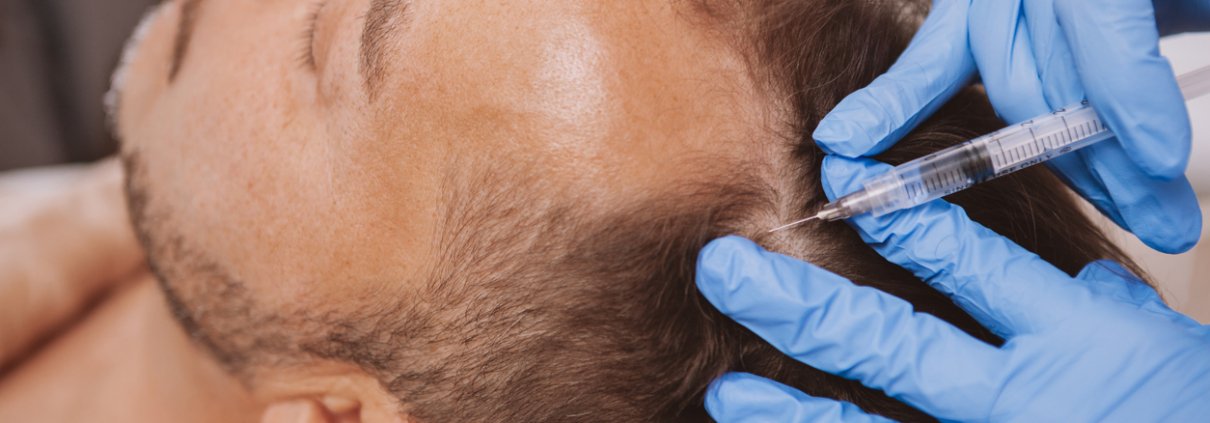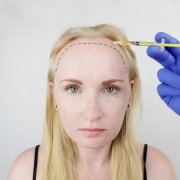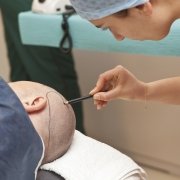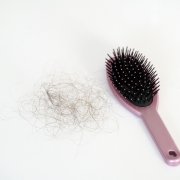Replacement for Lost and Thinning Hair
Hair loss is a cause for concern regardless of your age, ethnicity, or gender. Hair loss isn’t just a cosmetic concern, as it can impact your perception of yourself and affect your quality of life. If you are having hair loss, you might feel self-conscious.
Fortunately, advances in medicine have paved the way to slow down hair loss and even reverse it. If you are experiencing hair thinning, it might be time to explore your treatment options and schedule a check-up with a hair specialist.
Understanding Hair Loss
As you get older, some degree of hair loss is considered normal. Your hair might naturally begin to lose its volume and strength. The American Academy of Dermatology (AAD) point out that people lose around 50–100 hairs every day.
Fortunately, new hairs grow from the same hair follicles. However, some follicles stop producing hair over time, and the hair shafts get finer. If you notice significant hair thinning or bald patches, you may be experiencing hair loss that is abnormal.
By the age of 40, it’s estimated that about half of all men will suffer from hair loss due to male pattern baldness. Likewise, more than half of all women will experience female pattern baldness before the age of 70.
Causes of hair loss other than male and female pattern baldness include:
- Medical conditions including alopecia areata and trichotillomania
- Hormonal changes with pregnancy or thyroid disease
- Medications for cancer and high blood pressure
- Vitamin D deficiency
- Not having enough iron, folic acid, and other minerals in your diet
- Radiation treatment
- Physical or emotional stress
- Styling practices such as wearing tight ponytails or cornrows
Many people wonder whether they need to pursue treatment to reverse the effects or if they can grow hair back on their own. The first step to resolving your hair loss is identifying the underlying cause. If the reason is genetic, it will not grow back on its own. To regrow a healthy, full head of hair, you need to step up and take action, and that involves exploring various hair loss treatment options with a hair specialist.
Replacement For Hair Loss
Hair Transplant
Examples of surgical hair replacement include:
- Follicular Unit Excision (FUE) Hair Transplant
- Follicular Unit Transplantation (FUT) Hair Transplant
During a hair transplant, the surgeon trims the hair in the donor site and removes individual hairs (follicular unit excision) or a linear strip of hair (follicular unit transplantation). The donor hair is placed in the area of the scalp where there is hair thinning.
The success of a hair replacement procedure is greatly associated with the hair transplant surgeon’s skill. In the hands of a highly experienced surgeon, you can get beautiful, permanent, and natural-looking results from the procedure.
Other Options For Hair Loss Replacement
There are a variety of hair replacement treatment options. What works for you might not be suitable for others. The right choice for you will depend on various factors, including your overall health and your hair loss severity. The most commonly used non-surgical options for hair replacement include:
- Platelet-rich plasma (PRP) therapy
- ACell + PRP Therapy
- Allograft + PRP Therapy
- Stem Cell + PRP Therapy
- Low-Level Laser Therapy
Some medications might help regrow your hair back, as well. The two most common and approved by the FDA are Minoxidil and Finasteride. Minoxidil (Rogaine) is an over-the-counter hair loss treatment. It’s a safe and effective treatment for androgenetic alopecia. It can take up to 16 weeks for Rogaine to show visible results.
Finasteride (Propecia) is another prescription hair loss medication. Unlike topical minoxidil, Propecia is a daily pill that is taken for hair loss. Women who are pregnant or nursing should avoid this medication due to possible side effects.
Hair Loss Treatment in Missouri
Hair thinning may be a natural occurrence for many people, but you don’t have to live with it. Dr. Scott Darling of Darling Hair Restoration can provide a comprehensive hair loss evaluation to get to the root cause of your hair loss. He will then discuss effective treatment options with you. Get to the bottom of your hair loss and restore your crowning glory with the help of an experienced hair specialist, like Dr. Darling.
To schedule an appointment, call us today at (816) 792-3400 or use our online request form.










